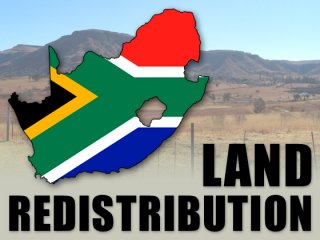Land Reform and Redistribution in South Africa
By Laura Oneale on January 18, 2014
Since 1994, under the Nelson Mandela government, land reform and redistribution in South Africa remained a serious matter for the government to implement. Twenty years since the African National Congress (ANC) began to govern South Africa, there have been negotiations and plans to redistribute the land and implement reforms for the democratic society. Whenever an election is due, the ruling party and opposition parties will promise to develop the land reform process and speed up the redistribution. We have seen several attempts during the last twenty years which have failed.
In South Africa and over the past years reports have indicated that about thirteen percent of all land belongs to blacks. A more accurate prediction would be closer to fifty percent.
A substantial amount of land would remain in the farming communities, to change this would be selfish and unreasonable. Some fifteen years ago, there were over sixty thousand farmers in South Africa and today that figure barely reaches thirty thousand. Farmers have expanded their operations significantly over the past years in order to benefit from the growing economy and the supply and demand factor. The farming community remains a constant concern as more and more land is grabbed in illegal and questionable actions. The escalation of farm murders and implementation of broad based economic factors contribute to this disaster.
Land reform projects have failed and to call for an expedited change would create a political disaster for the ANC government. There must be clarification on why the previous land reform policies implemented in the past had failed. To put additional burdens on the farming community and their ability to produce food could cause a series of protests.
The cause for the collapse of land reform is lack of experience and expertise. There are instances of lack of interest by the new owner, training and giving guidance is another obstacle that causes the breakdown of land reform.
Land reform policies started in the 1990’s, and the role of this was to change the inequalities of the apartheid era law, when black people were not permitted to own land in South Africa.
Ten years ago an article of land reform took to the media when Solomon Mokwena proudly displayed his farming equipment. The ruling government bought land from a white farmer and distributed this to disadvantaged black farmers. Mokwena and 200 farmers started a cooperative to control the land. He told the media that the machines were only used once in 2002 and since then have never ploughed again. He explained that lack of funds to buy essentials such as seed and oil remained a persistent problem.
Since the start of land reform and redistribution some eighteen years ago, it is estimated that ninety percent of black farmers are unproductive. This is a sad fact and a alarming factor for the farming community who has the burden of producing enough food to feed the nation. Lack of knowledge and revenue is the leading cause of failure.
In the early 1990’s when land reform began in earnest, more than eighty percent of commercial farms were owned by white farmers. The ANC government had promised to redistribute one third by 2014. It is recorded that less than eight percent of the land has been redistributed.
Jacob Zuma admitted that the land reform policy in South Africa was one of the sweeping promises made to black people after the end of apartheid and has not worked out as planned.
The strategies announced by the government, for implementing land reform is purely political and dangerous. The issue of redistribution must be completed correctly and improve food security. It is not a matter of blacks owning land if they remain unproductive, especially in the farming community. This is a sure sign of a flourishing agriculture sector collapsing, especially in view of what happened in Zimbabwe.
The land reform and redistribution in South Africa is a serious concern for the ruling government and must be resolved in a suitable manner. Education and economic sustainability is a key component in negotiations for a workable solution.
By Laura Oneale

